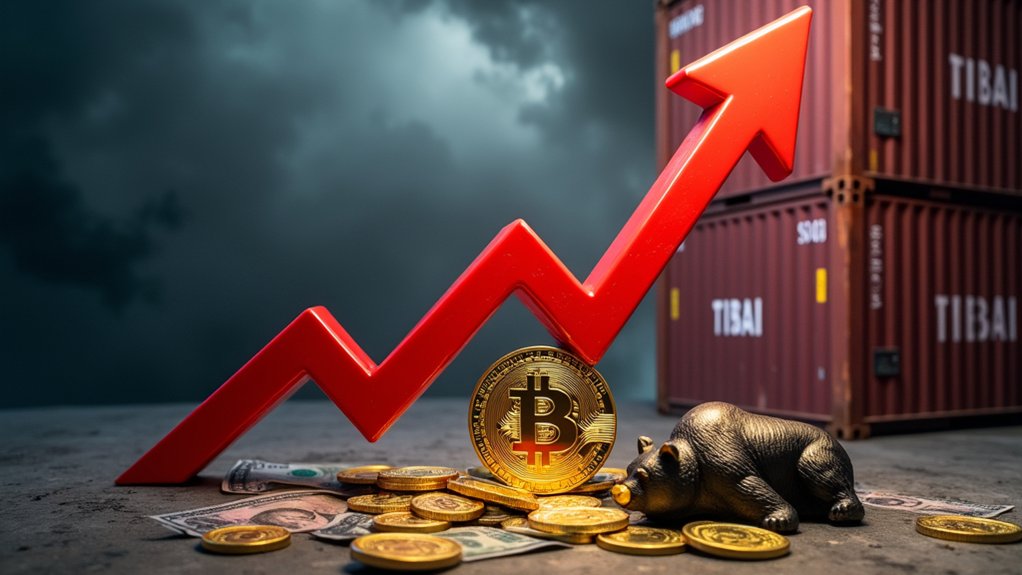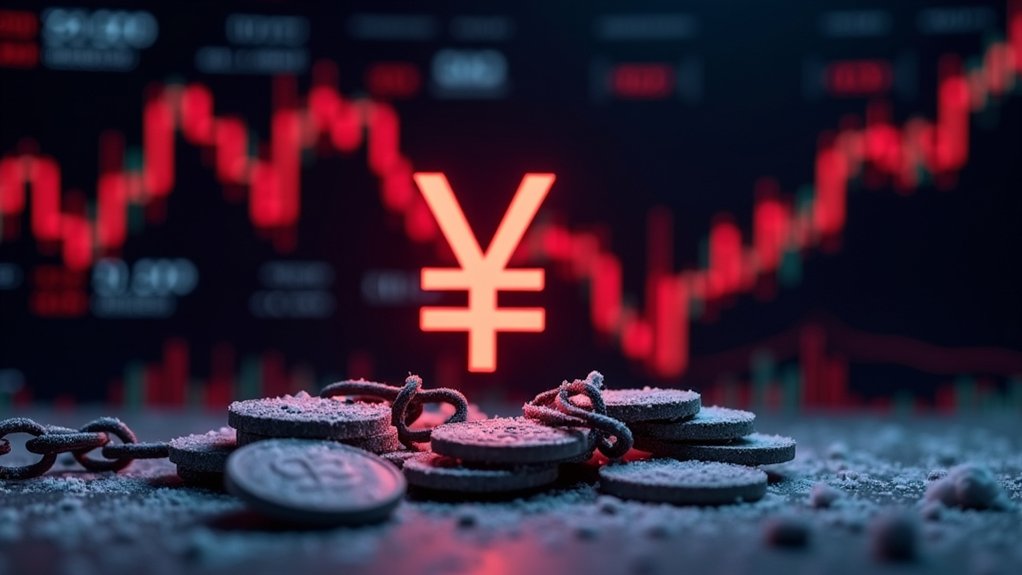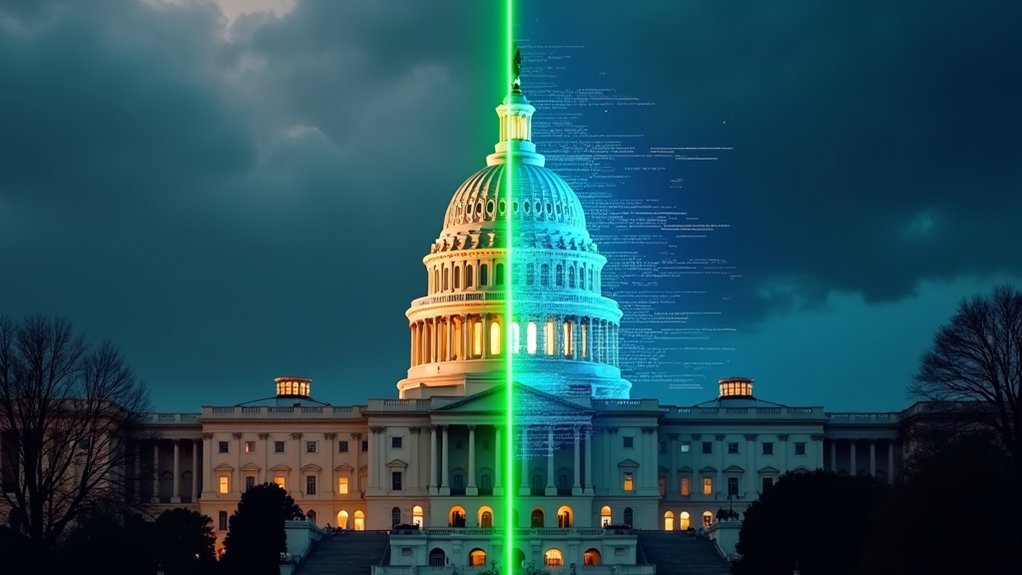While global markets reel from the announcement of sweeping new tariffs under the Trump administration, Bitcoin’s response has been anything but straightforward. The tariffs—a whopping 10% baseline on imports and 25% on foreign cars—hit 185 countries except Canada and Mexico. Pretty massive stuff. Not exactly small potatoes in the history of U.S. trade policy.
Bitcoin dropped 2% right after the announcement. No surprise there. Ethereum, Solana, and XRP took bigger hits, down 3-4%. Classic market jitters. Bitcoin still follows equities when people get scared—that annoying 40% correlation with NASDAQ keeps hanging around like an unwanted party guest.
Crypto markets stumble on tariff news, with Bitcoin’s stubborn NASDAQ correlation proving it’s not quite the rebel it claims to be.
Here’s the real kicker: these tariffs will probably jack up inflation. Higher prices on imported goods? Check. More pressure on the Fed to maybe raise rates? Double check. Not exactly Bitcoin’s favorite economic climate in the short term.
But wait—there’s a plot twist coming. Analysts think Bitcoin could break away from traditional markets as things get messier. The whole “digital gold” narrative isn’t just crypto-bro talk anymore. Gold’s up 18% this year while everything else burns. Bitcoin might follow suit, eventually. The fixed supply cap of 21 million coins makes Bitcoin naturally resistant to inflation, unlike fiat currencies that can be printed endlessly.
Trade wars make people nervous about fiat currencies. The dollar doesn’t look so mighty when countries are slapping tariffs on each other like it’s the 1930s all over again. Bitcoin—completely decentralized, no government strings attached—suddenly looks pretty attractive. No central banker can mess with its supply. The Trump administration’s reciprocal tariffs targeting fifteen different countries could significantly weaken the global dominance of the U.S. dollar.
Remember the banking crisis last year? Bitcoin stepped up when traditional finance stumbled. Same thing could happen here. Different crisis, same potential refuge. Bitcoin’s growing user base of over 580 million people worldwide represents an increasingly influential economic force resistant to tariff impacts.
The short-term pain is real. Bitcoin investors are sweating, checking their portfolios every five minutes. Classic crypto anxiety. But long-term? These tariffs might just push more people toward the ultimate economic escape hatch—a currency no president, central bank, or trade war can control.





